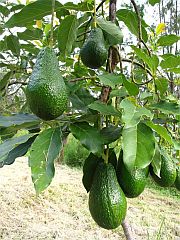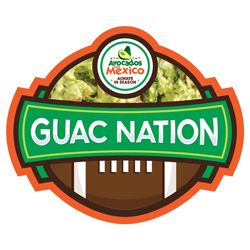Jalisco, Mexico - According to Hector Padilla Gutierrez, the head of the State's Ministry of Rural Development (Seder), the 120 tons of avocados from Jalisco shipped last week were stranded in Tamaulipas and unable to enter the United States due to red tape.
On January 16, after 83 years of waiting, five truckloads of the Grupo Roquín, Avo Select, Mevi Aguacates Selectos, and Grupo Cerritos companies departed from Ciudad Guzman to the United States, after authorities from that country green-lighted the entry of avocados from Jalisco.
However, according to the Seder, the avocado from Jalisco could not cross the border with Texas because their work plan wasn't signed. Currently, the avocados are stocked in the Mexican border city of Reynosa.
 |
"The problem was that the transporters moved very fast and arrived at the border Tuesday morning, and we had estimated that they would arrive in the afternoon. They wanted to enter the US, but were unable because they lacked this document."
The state official said that all the parties involved in this export already knew about the event and there had been a coordination problem. He said that, as a result of this impasse, the signing of the document had been suspended.
"I have been in contact with the producers and I met with the head of Senasica [Mexico's National Health, Food Safety, and Food Quality Service] once I learned of this problem. On Friday, Dr. Javier Trujillo, an official responsible for the negotiations of this product, was sent to Reynosa to solve the issue," he said.
"We hope this matter is resolved very soon and that the avocados from Jalisco enter the United States. We are aware that this is a very sensitive time between Mexico and the United States and we know we must be careful. We should handle things firmly, but also with great respect," he added.
According to Robb Bertels, the vice president of sales and marketing for Oxnard, California-based Mission Produce Inc., which has been shipping avocados from Jalisco to Canada, Asia and Europe from the region for several years, there are now reports that shipments to the US may not begin for another three or four months.
 |
Even without Jalisco, Bertels said supply of Mexican avocados for Super Bowl demand is increasing and Mexico should meet the demand. "I think there will be good volume and supplies for the Super Bowl," the marketing VP added.
According to USDA shipment statistics, Mexico accounted for about 95% of the US avocado supply in mid-January. Previous industry estimates put Jalisco's share of Mexico's 3.4 billion pounds of output at about 5%. The USDA reported that 2016-17 acreage of avocados in Jalisco totaled 44,000 acres, about 9% of Mexico's total avocado acreage of 503,000 acres.
This isn't the first time that there has been a delay in exports of avocados from Jalisco. The United States authorized the entry of this product in May 2016, but producers were unable to make their first shipments that year because of changes in the regulations.
Sources: The Packer • informador.com.mx


